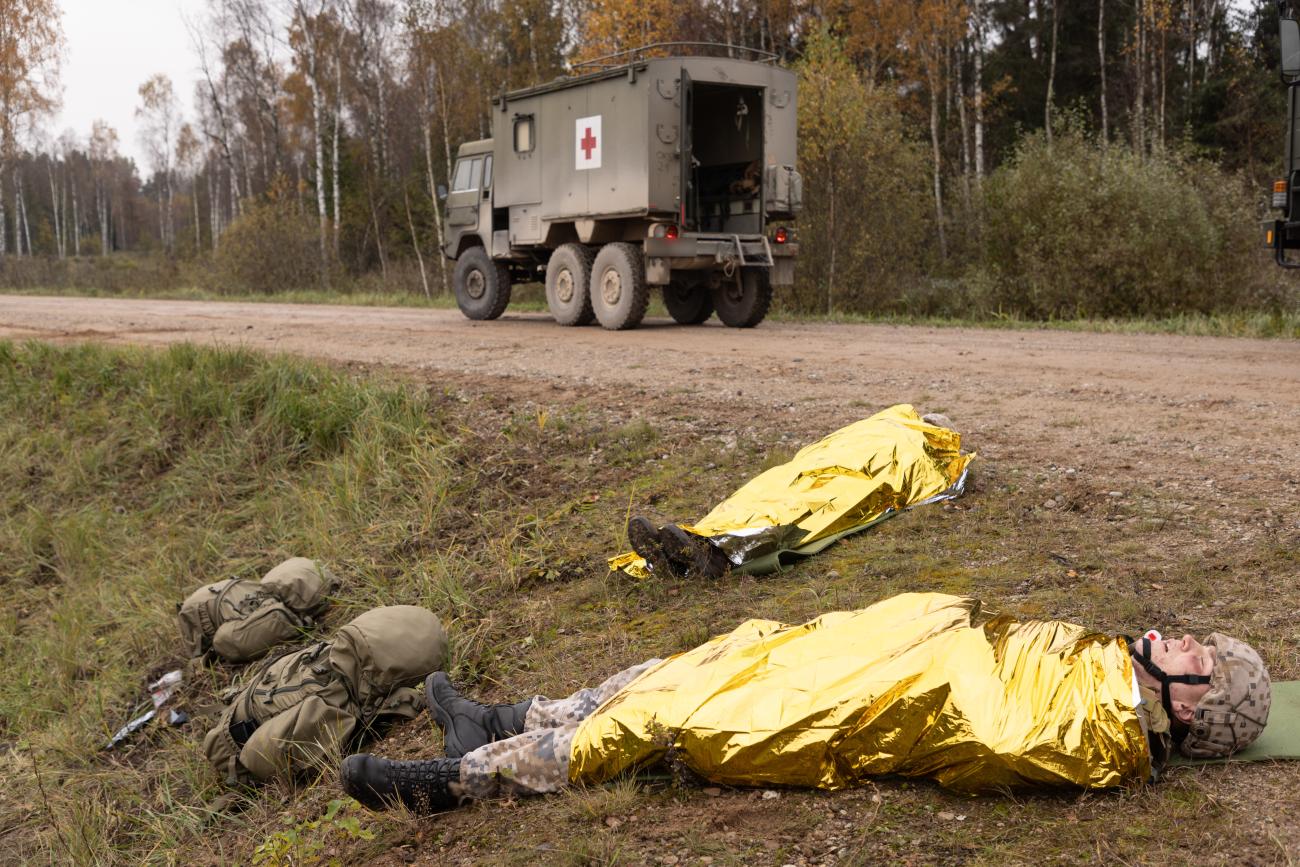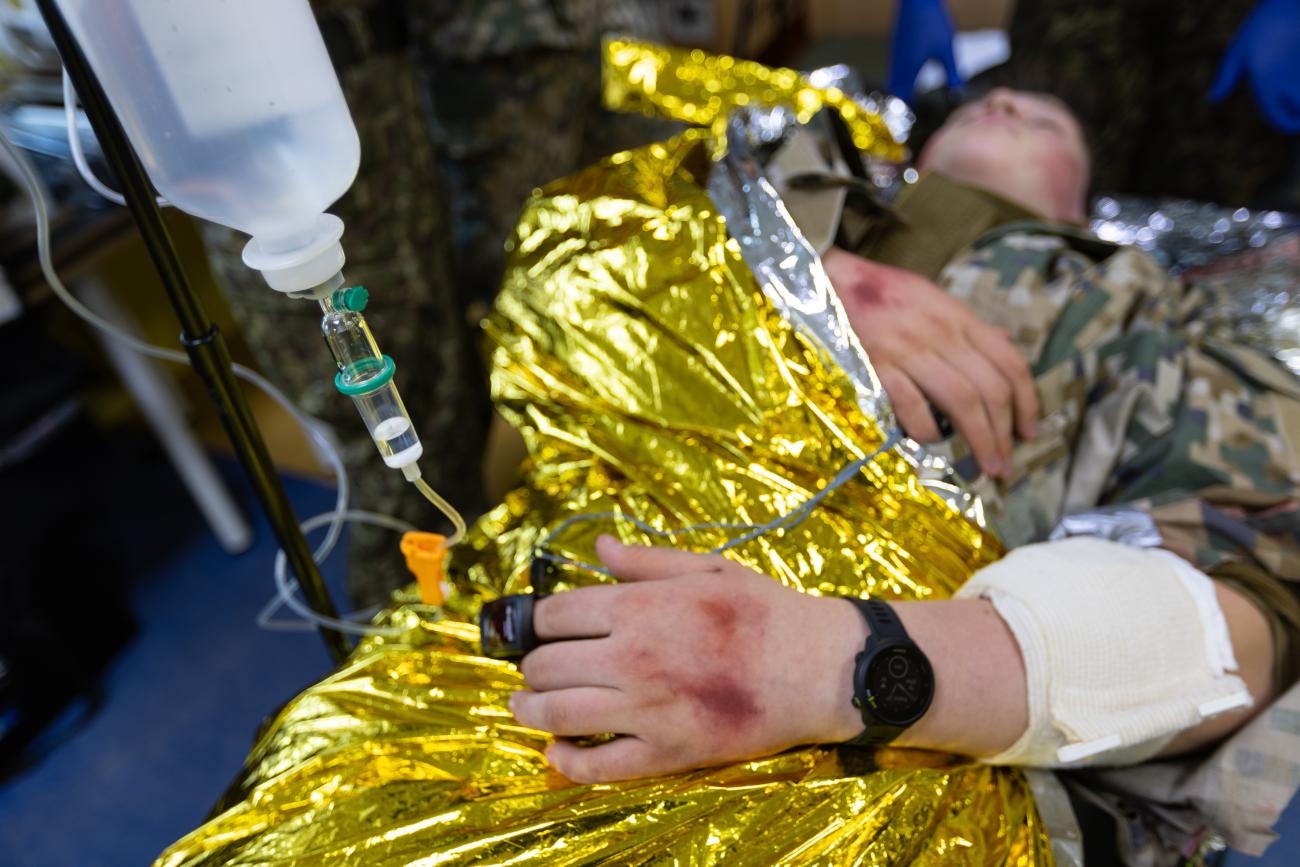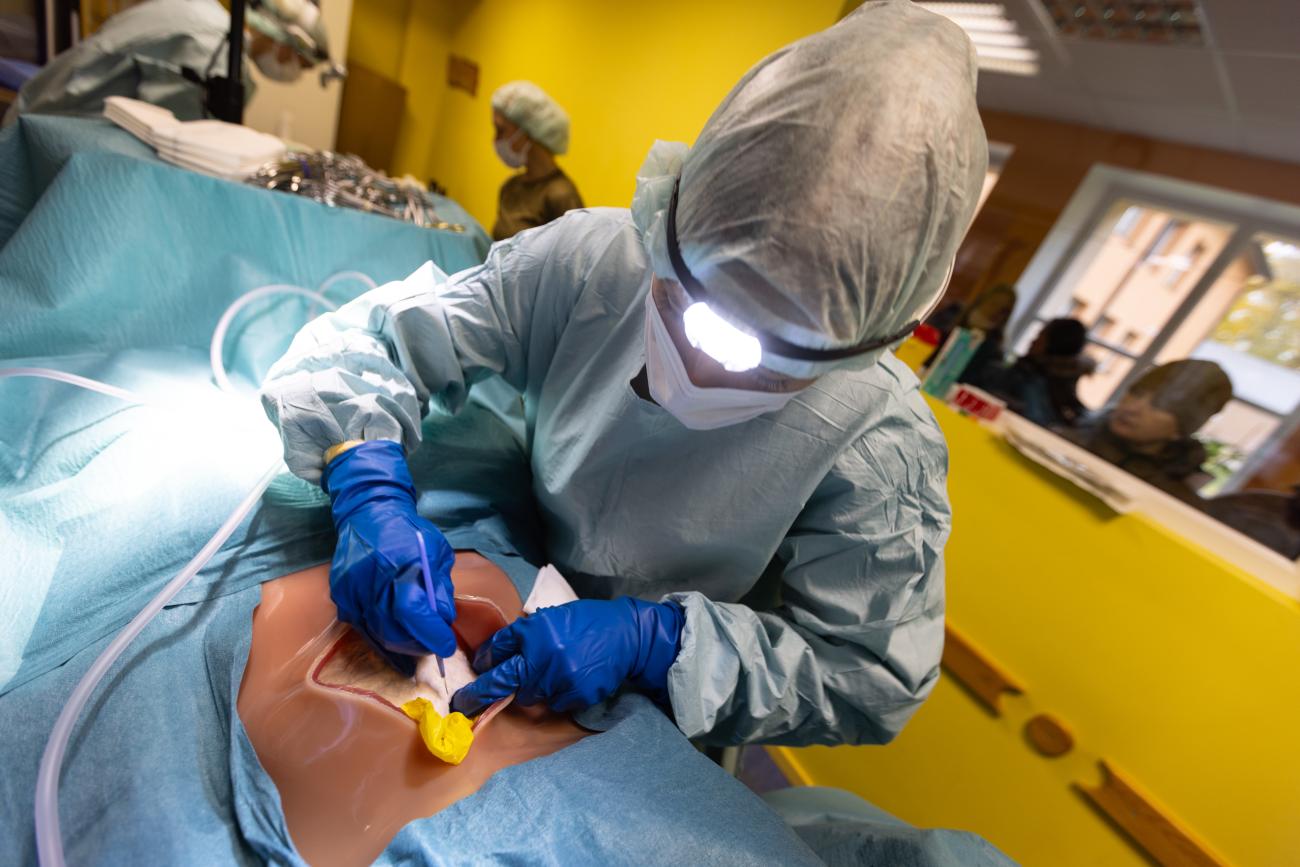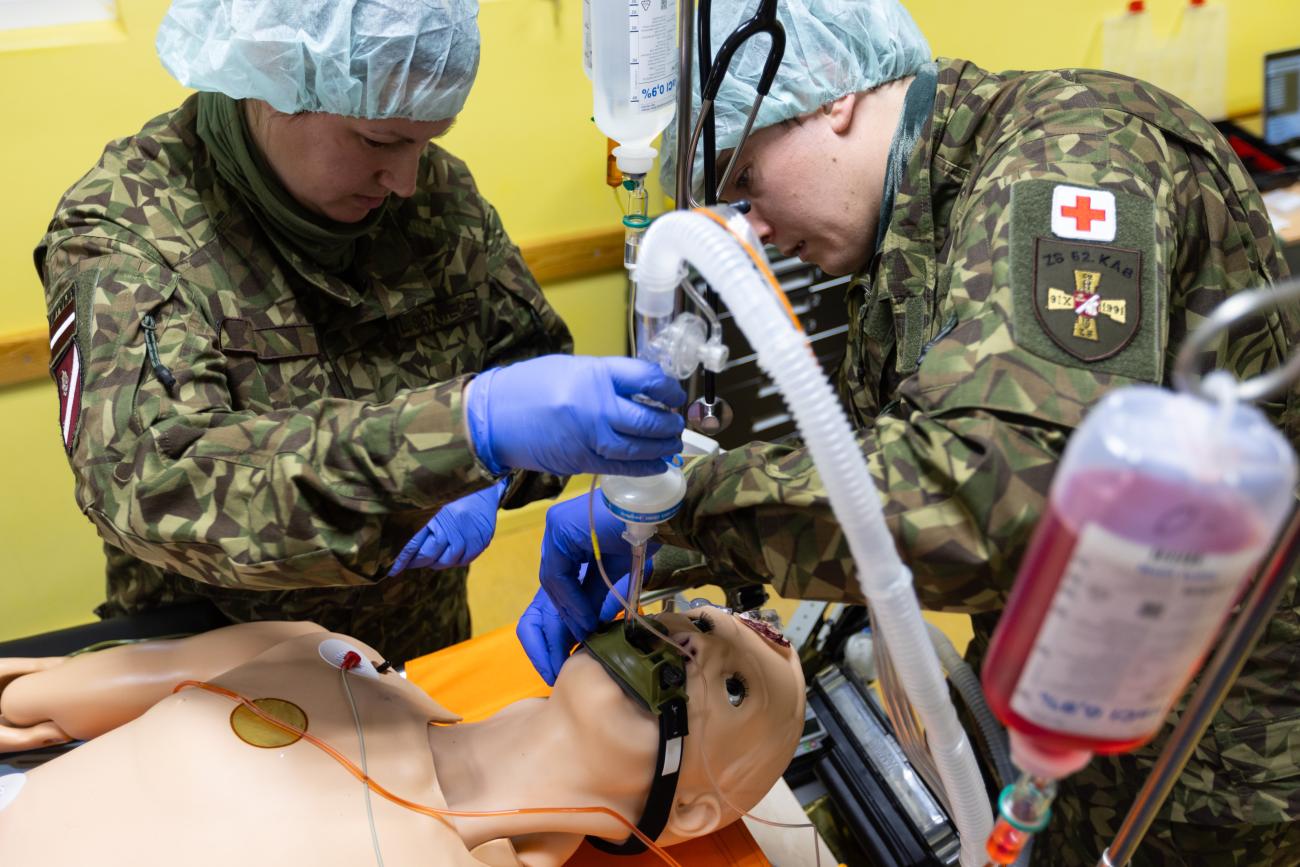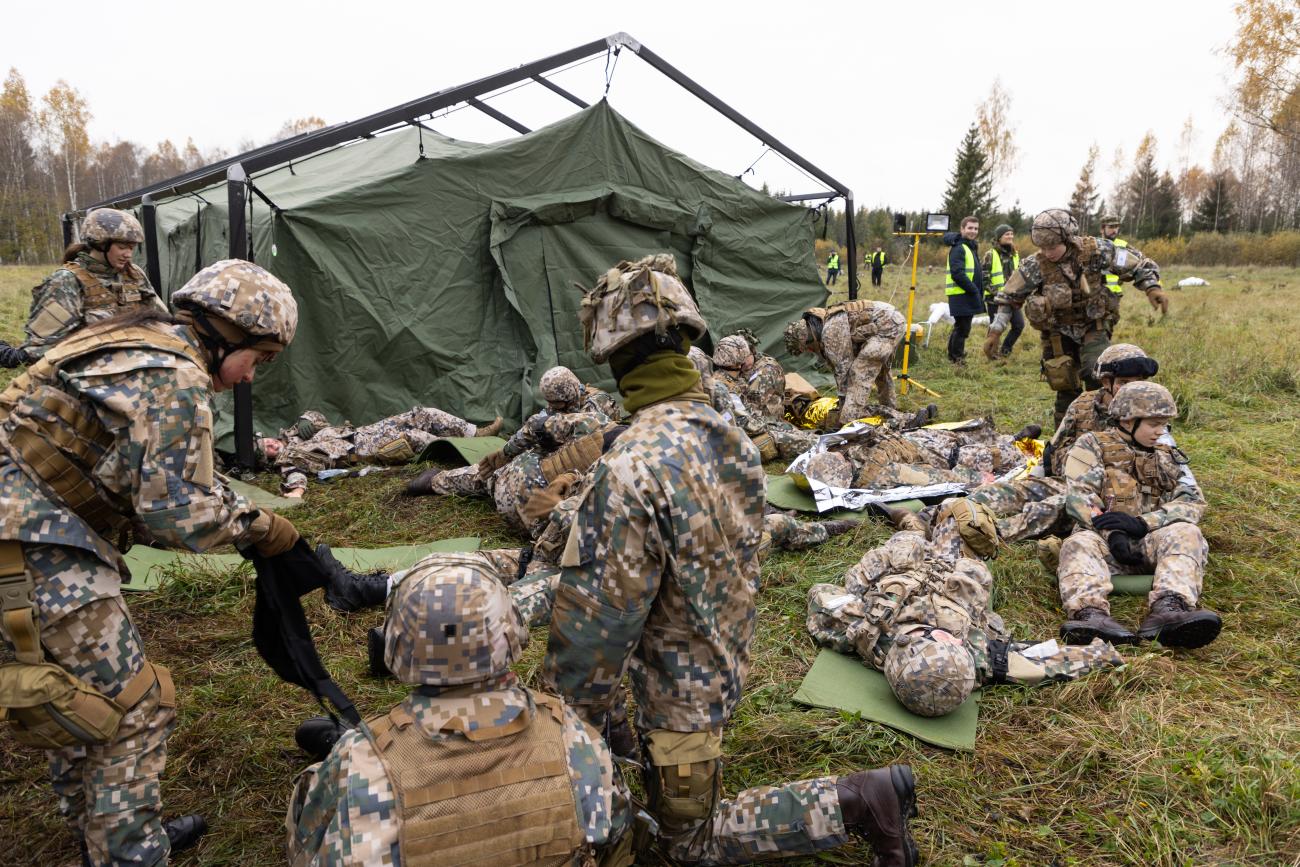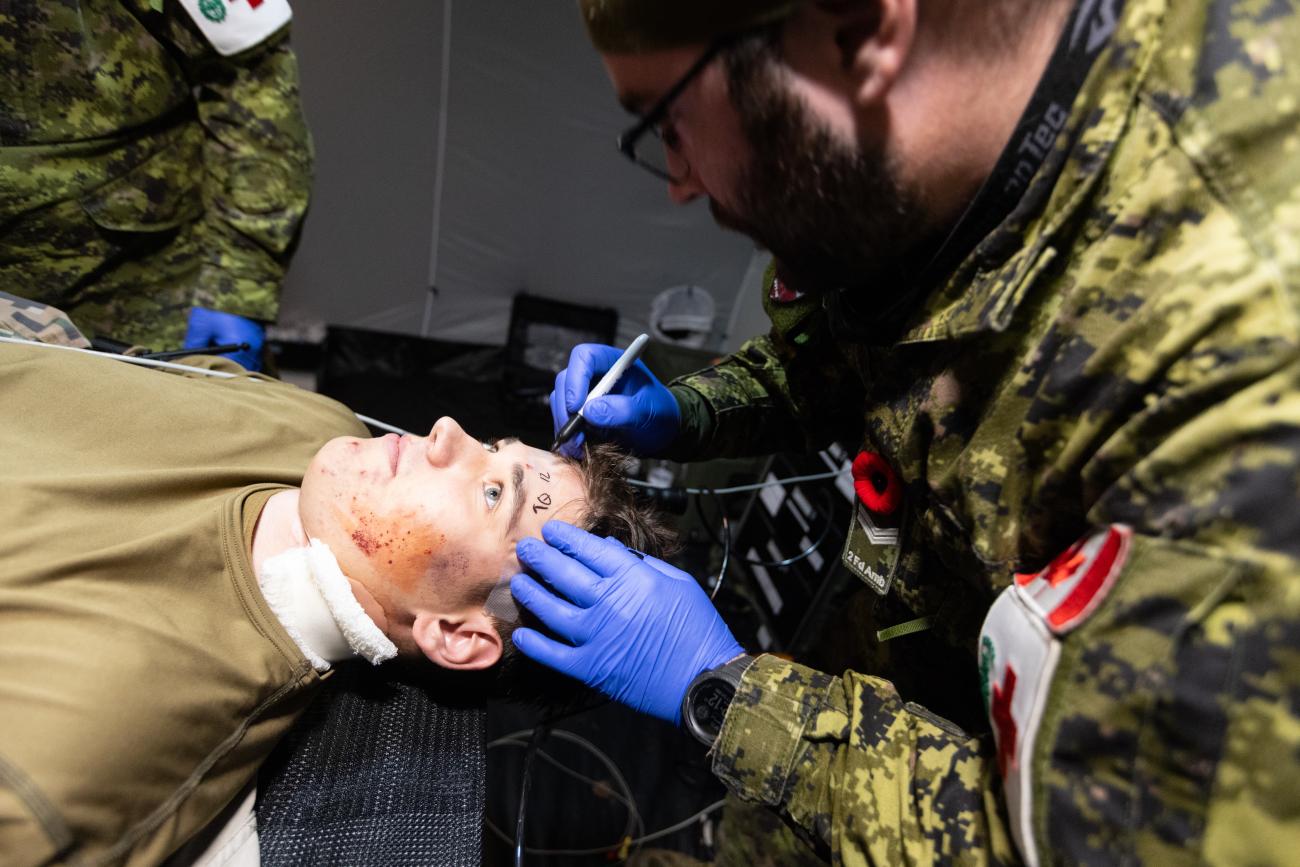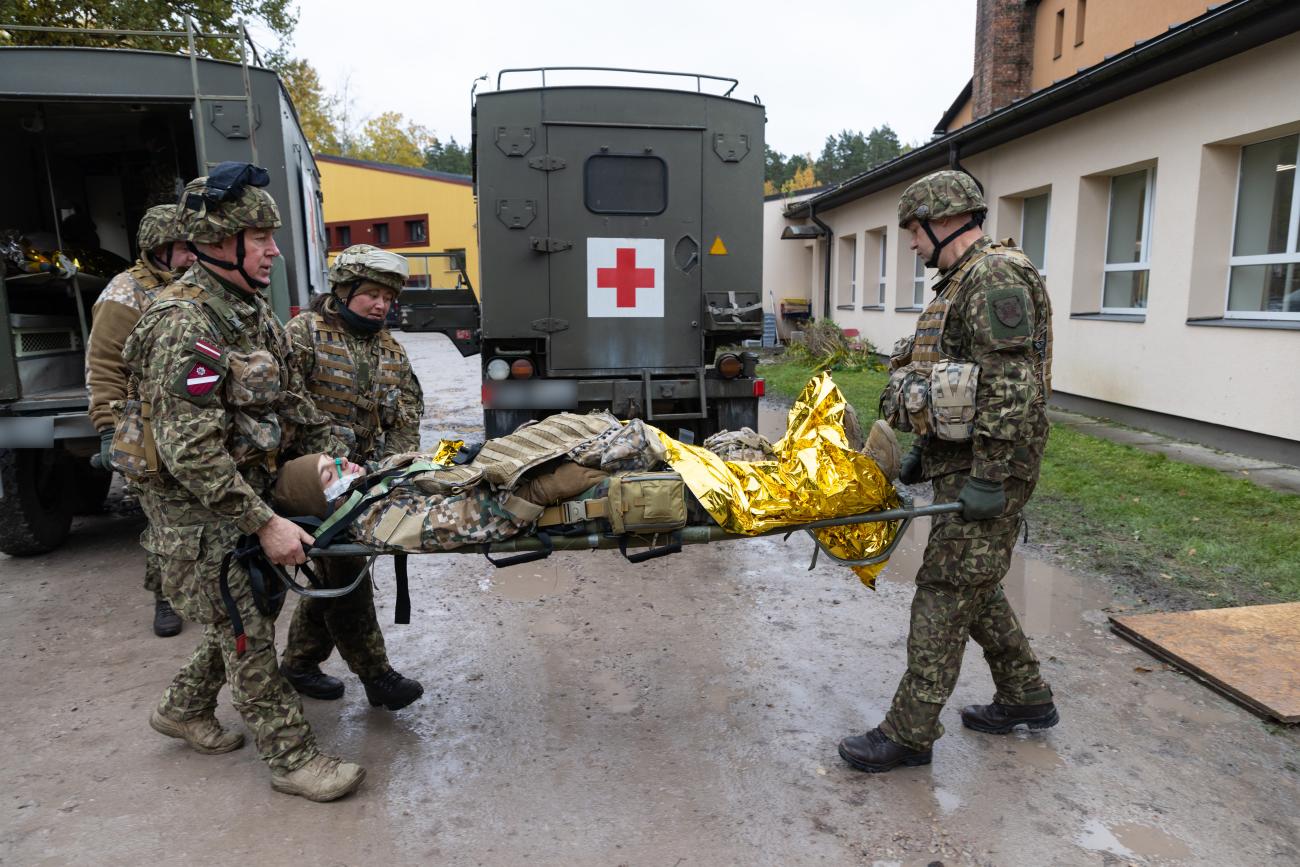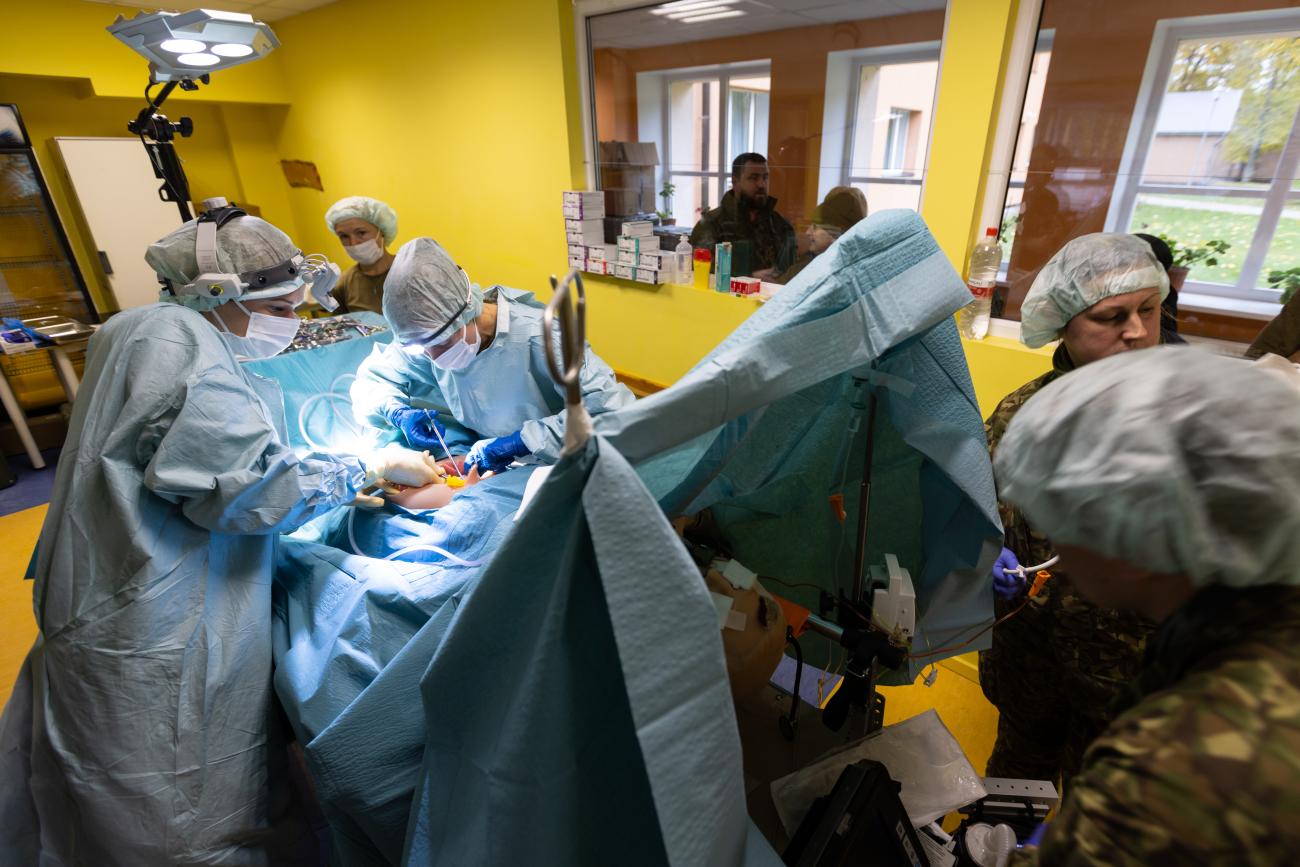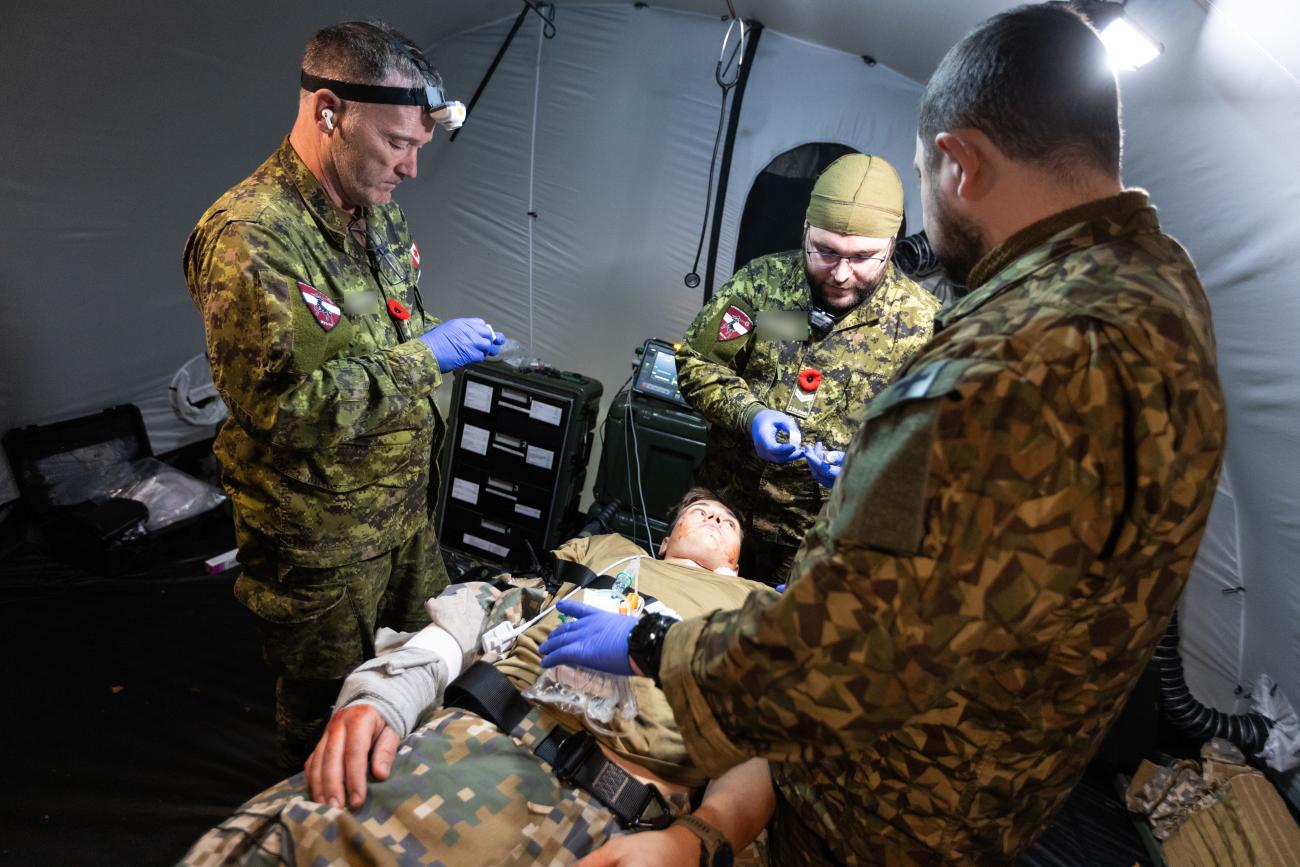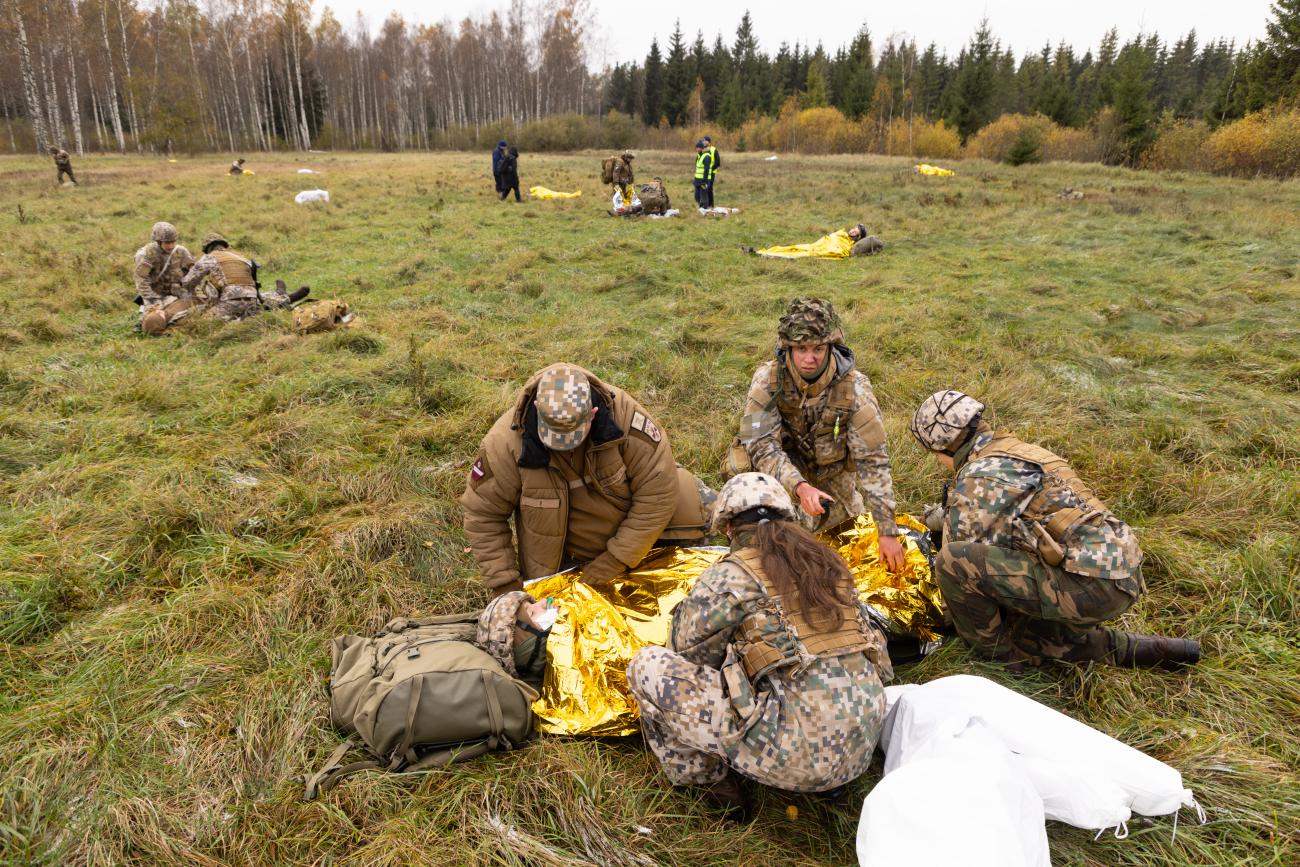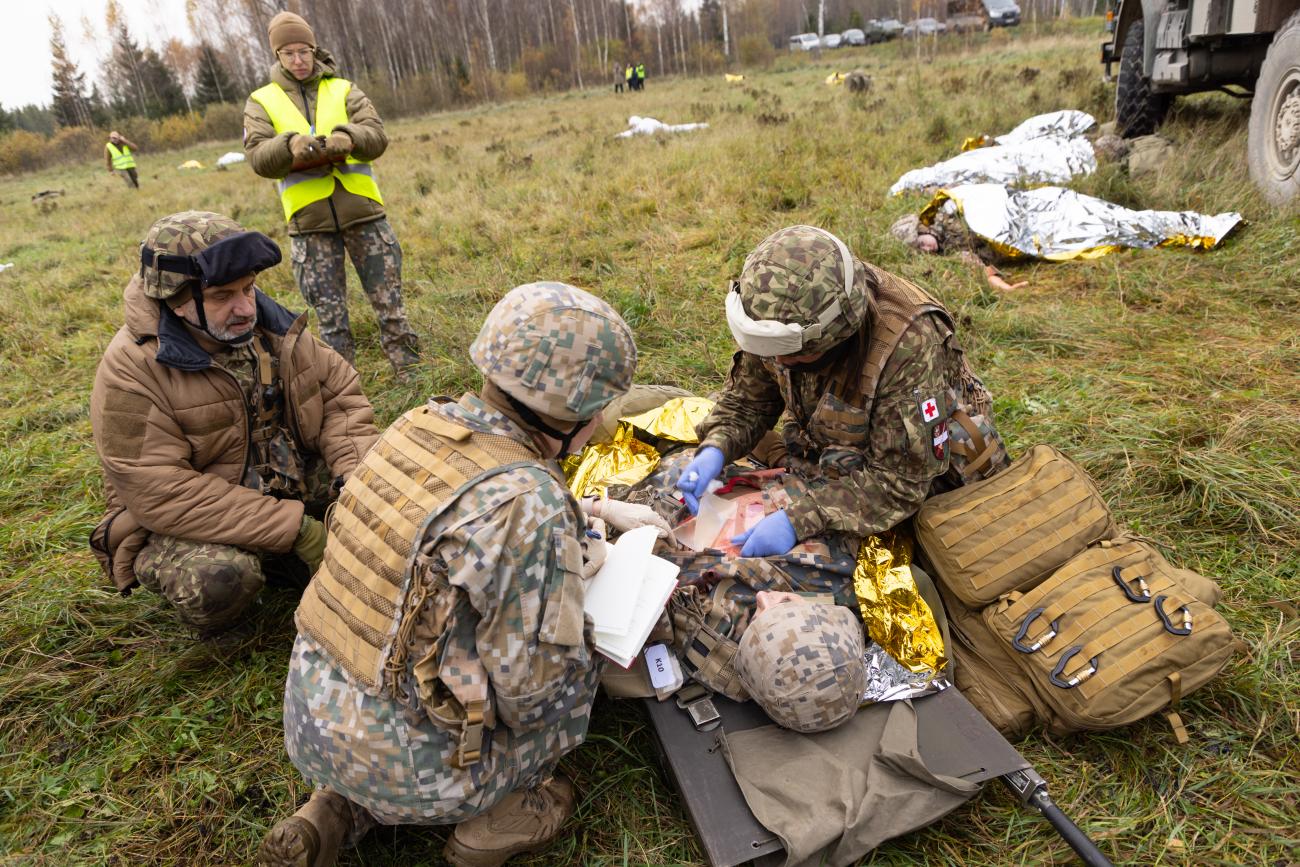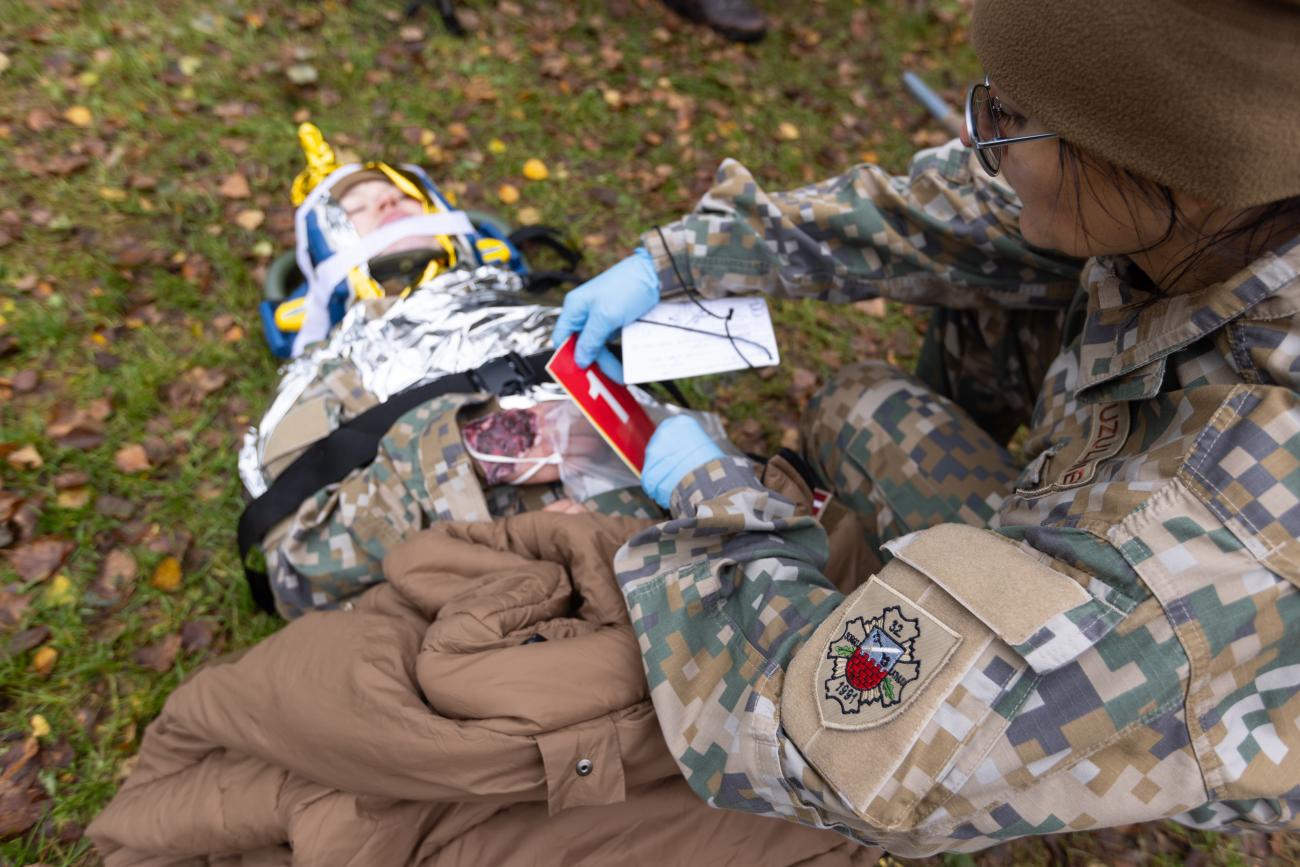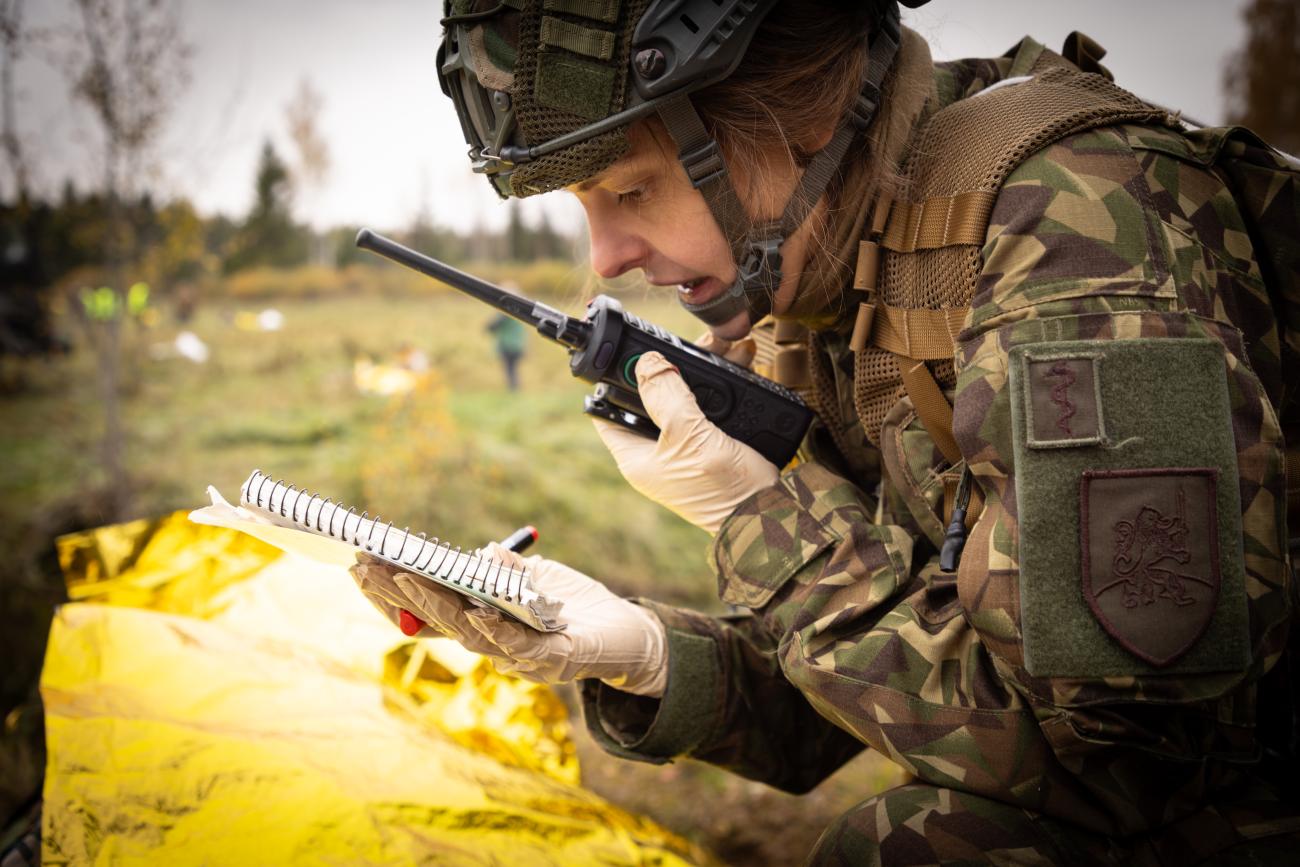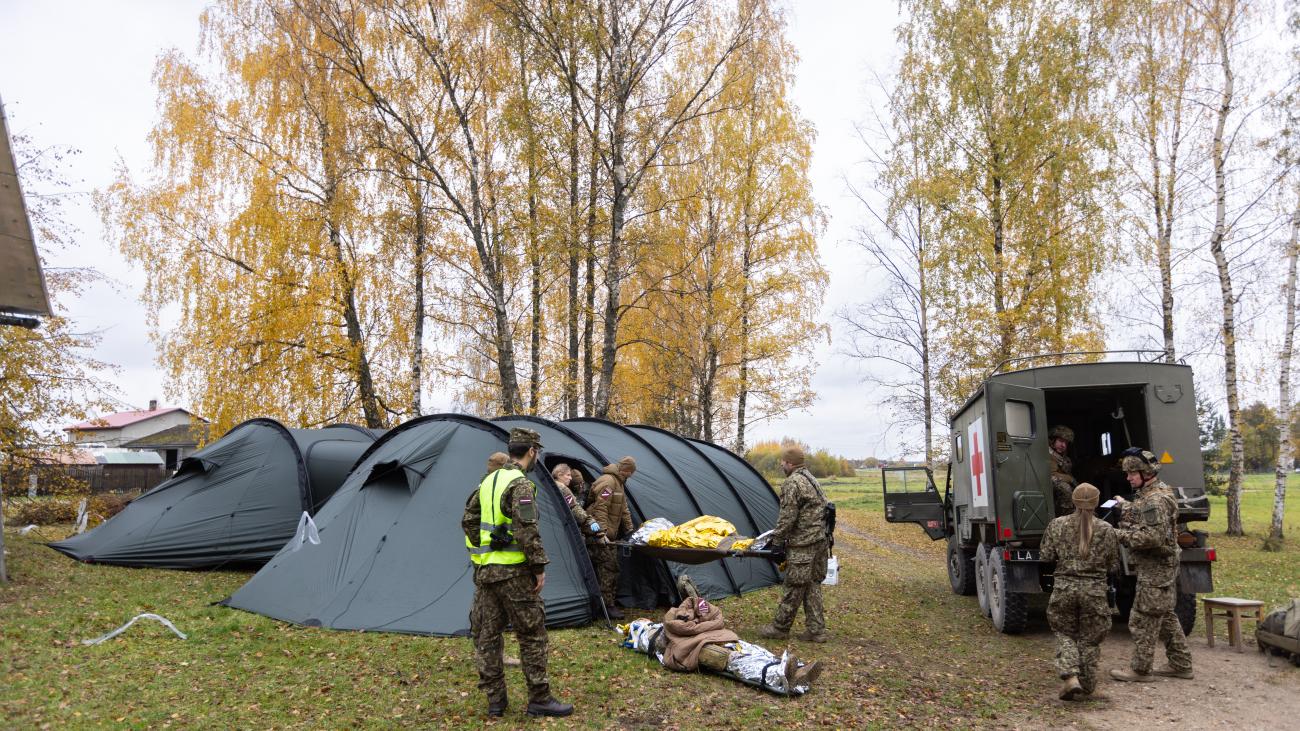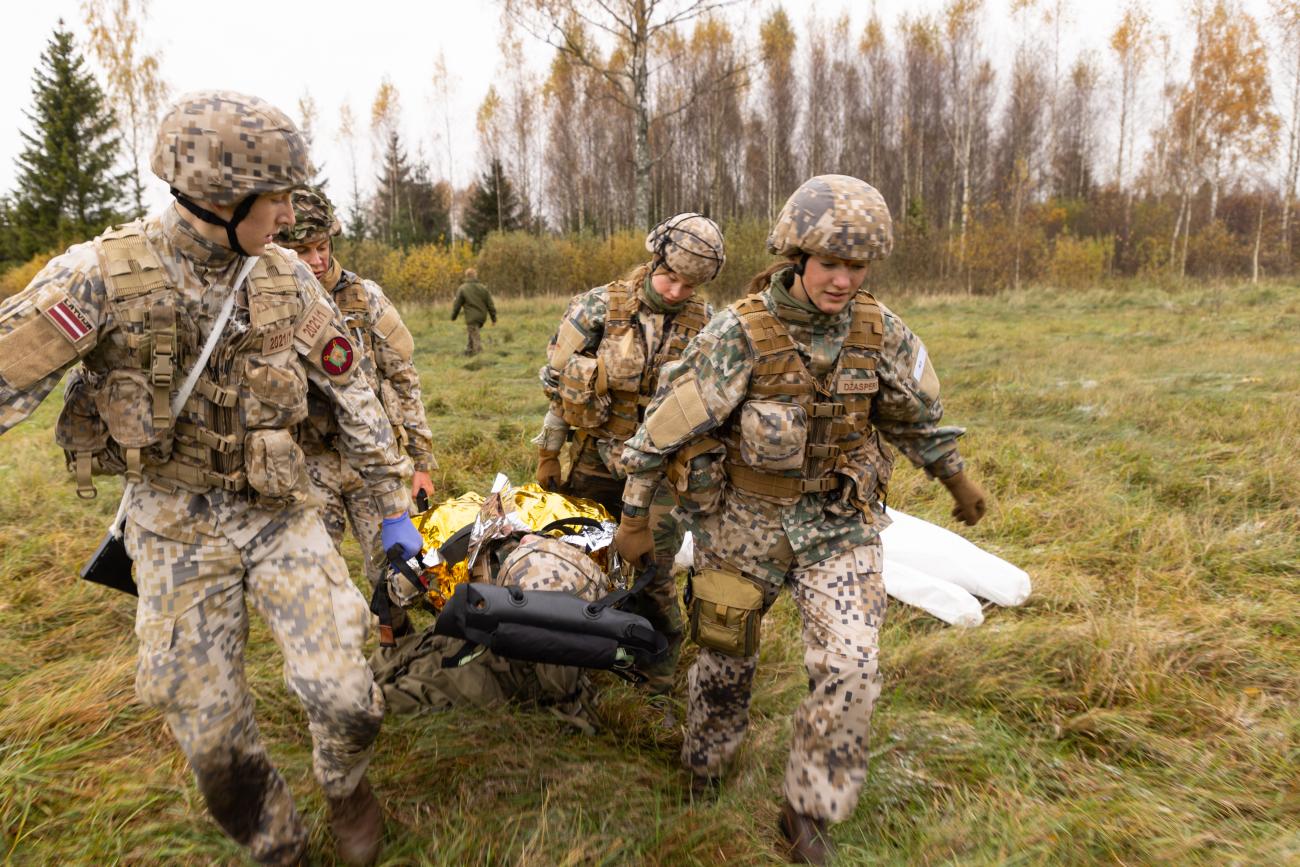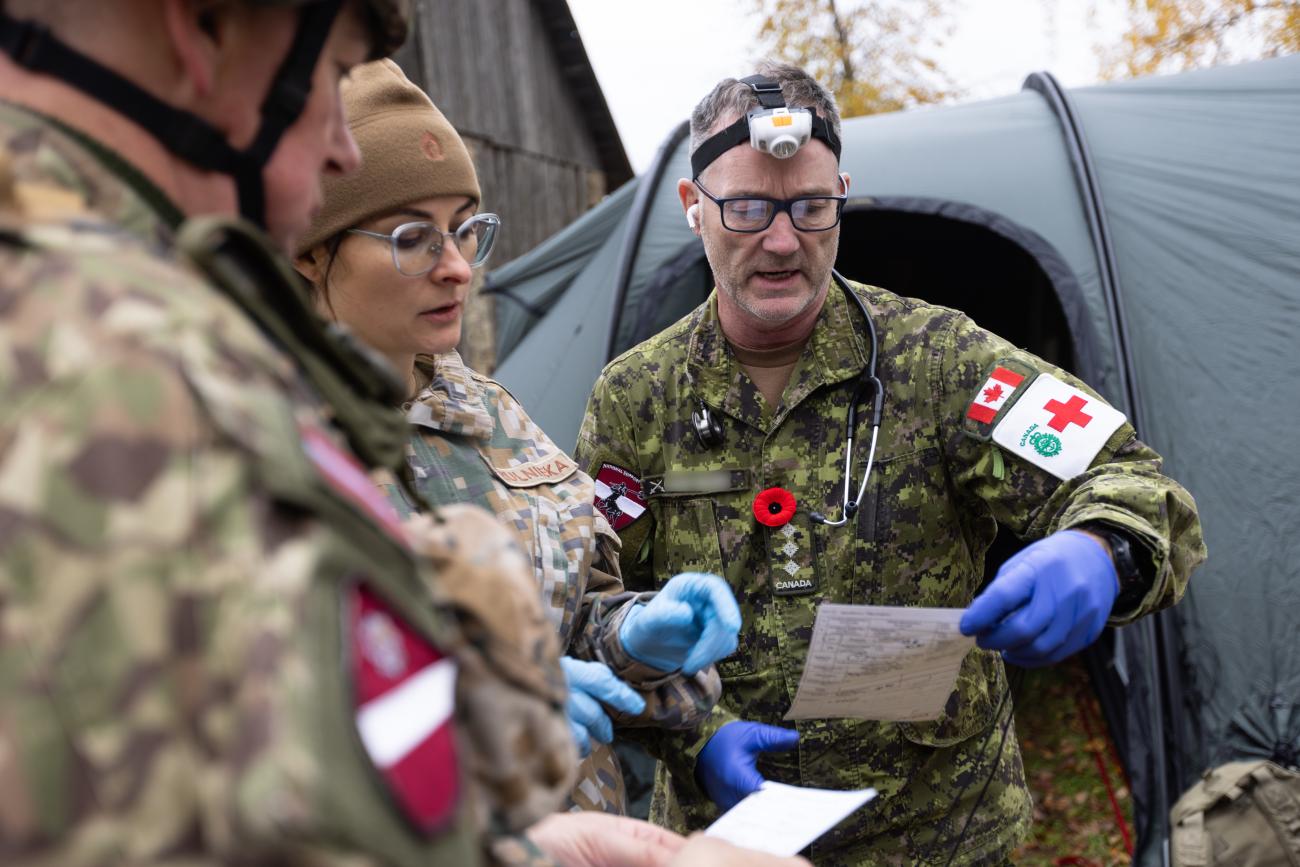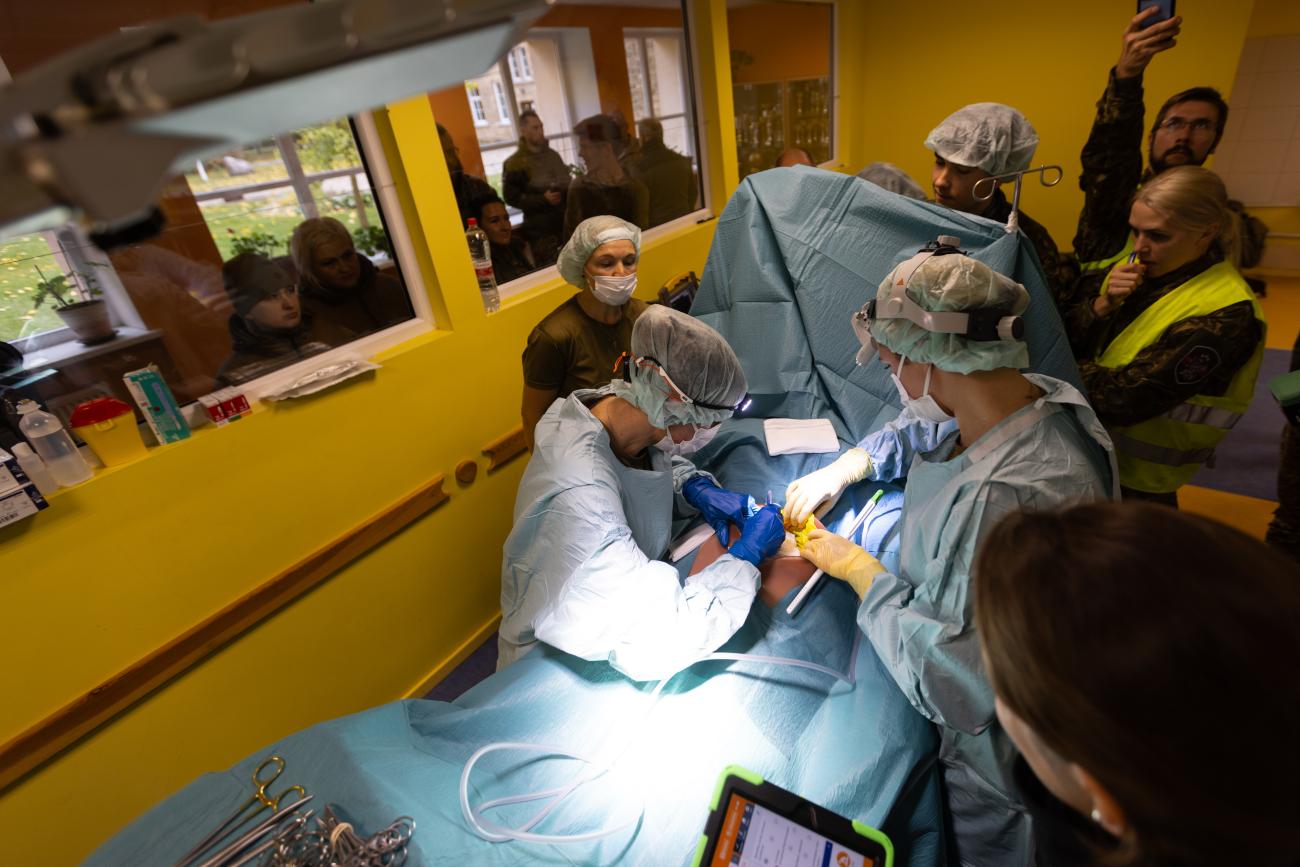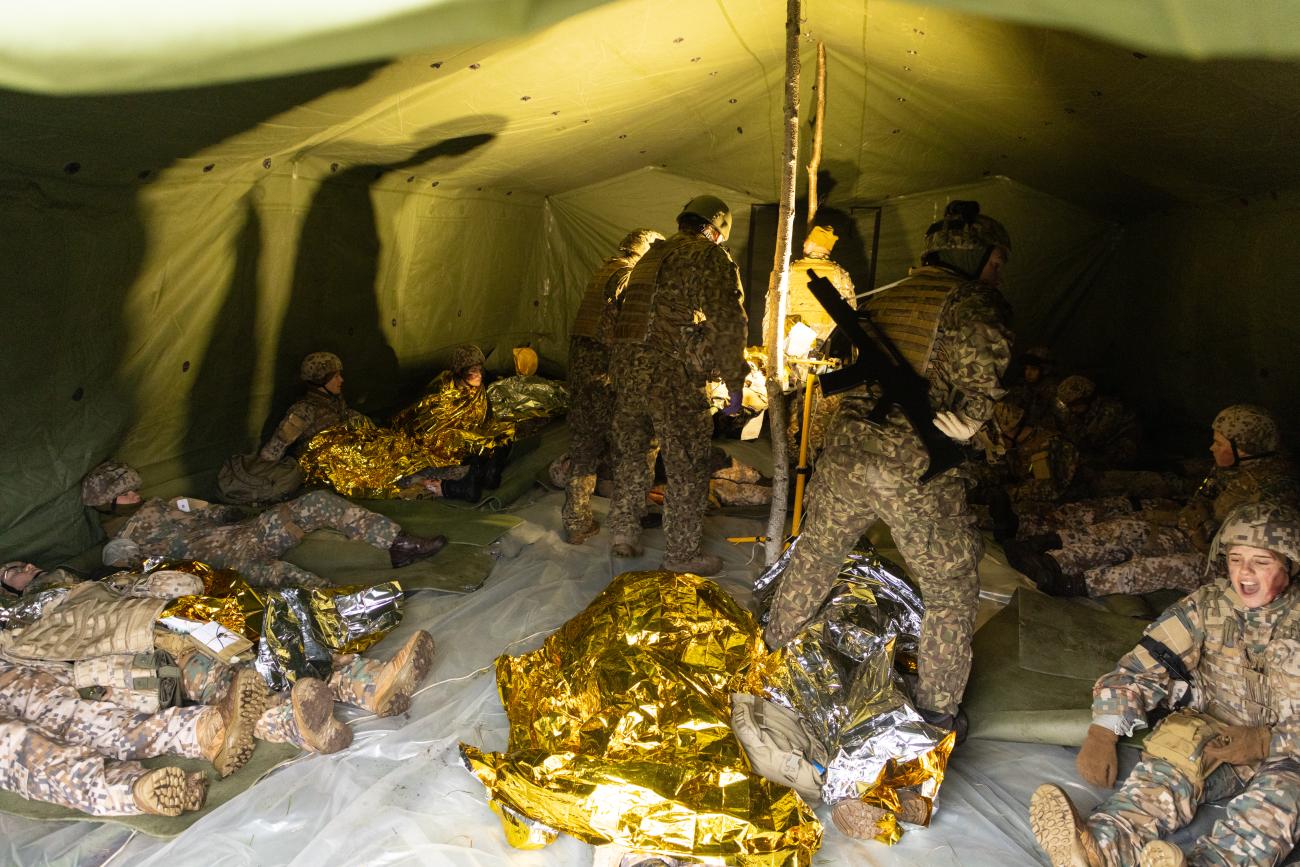RSU Medical Education Technology Centre supports military medical exercise Kurland 2023
Over the weekend, the Medical Unit of the 4th Kurzeme Brigade of the National Guard organised the military medical exercise Kurland 2023. The aim of the exercise was to develop combat medics’ and rescuers’ ability to handle situations that require mass casualty triage, first aid and medical stabilisation, as well as improve cooperation skills with civilian medics.
The training took place on the territory of Kalnciems Secondary School in Valgunde municipality, Tīreļi Library, and the Christmas Battle Museum. The scenario that was simulated involved 50 soldiers injured after contact with the enemy near Ložmetējkalns. The casualties included soldiers with various degrees of wounds, as well as dead soldiers.
During the exercise, participants conducted mass casualty triage and provided medical care, organised the evacuation of casualties to Role 1 and Role 2 unit medical support points, and cooperated with civilian medics, especially the Emergency Medical Service (EMS), to transport casualties to the participating hospitals – Jūrmala Hospital, Jelgava Hospital and the Hospital of Traumatology and Orthopaedics.
The main activity of the Rīga Stradiņš University (RSU) Medical Education Technology Centre (METC) is to develop and implement simulation-based training programmes and activities at different levels and topics. One of the METC's activities is to support the development and implementation of broad-based, inter-institutional training activities in the field of military medicine.The METC has already participated in and provided support at the following events:
- NATO exercise Trojan Footprint 22, in which participants from several NATO member countries practised their medical evacuation (MEDEVAC) skills together with special operation forces and ground forces. Read more
- International military exercise Zemessardzes patruļa 2022. The METC provided the medical checkpoint for the selection phase, where participants had to move victims from a 'red' to a 'yellow' area and provide aid using the victim’s IFAK (individual first aid kit). The exercise was carried out in the dark to increase the difficulty of the conditions. Read more
- Civil-military medical exercise Panaceja 2023. The METC had to develop simulated scenarios, create injury moulages, prepare simulated casualties, and provide simulation technologies and solutions. Read more
The METC also had the opportunity to participate in developing and implementing this military medical exercise – Kurland 2023. In this type of exercise, the plausibility of the situation and the realism of the conditions are crucial, and the required outcome can be effectively achieved through a simulation-based learning approach. As in other cases, the METC’s main task was to produce clinical descriptions of the victims that corresponded to reality. Representatives from the METC drafted 10 complex clinical case scenarios as well as 50 descriptions for the other simulated victims. The METC also prepared two types of moulages for the simulated victims to represent wounds corresponding to the mechanism of injury: one was put-on (prefabricated or cast in silicone), the other was made of silicone to be fixed to the skin as a sticker - with the additional use of make-up and fake blood.
The simulation instructors and medical equipment engineers from the METC provided continuous assistance during the event. For example, according to one of the scenarios, a victim with an amputated leg and a gunshot wound to the arm was transported to a level one medical support point, where the decision was made to hand the victim over to the EMS and transfer them to a hospital. The scenario envisaged that the victim, played out by a high-fidelity simulator, would die on the way in order for information to be exchanged on the location of the deceased and the victim’s affiliation to military or civilian units. One of the key objectives of the exercise was to identify communication bottlenecks between the participants and analyse how to improve these processes.
Knowledge and skills in military medicine are important because the nature of the injuries and the operational conditions and algorithms of action are different in military armed conflict and counter-terrorism situations. The number of wounded victims far exceeds the capacity of locally available medical resources. It is essential to acquire and regularly upgrade this knowledge and skills in a situation and condition mirroring reality as closely as possible, which requires adhering to the basic principles of a simulation-based learning approach.

